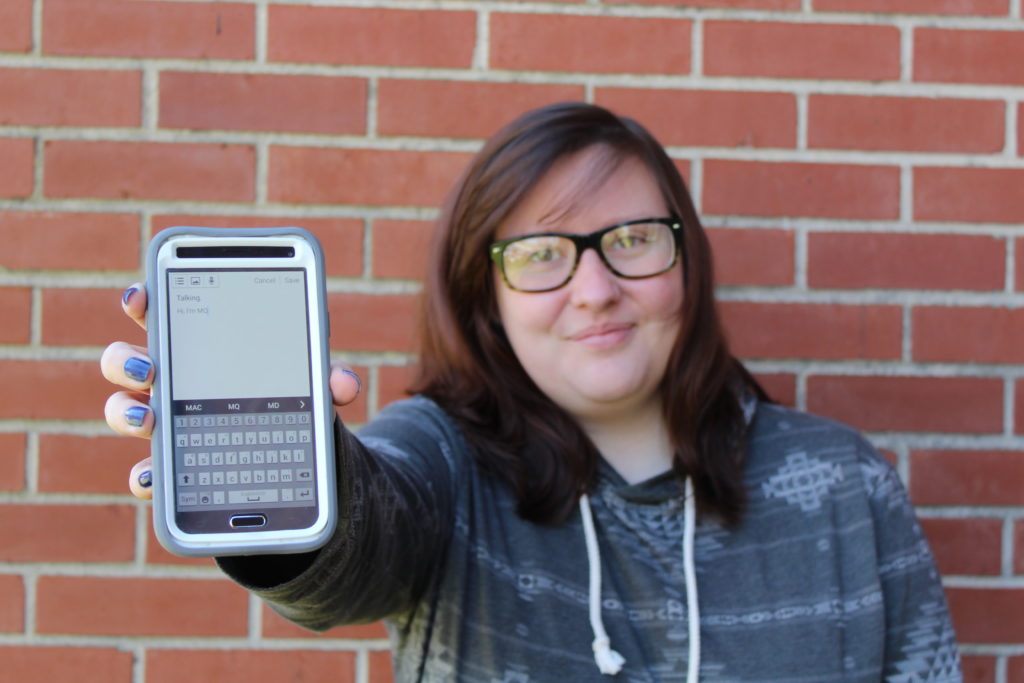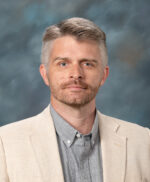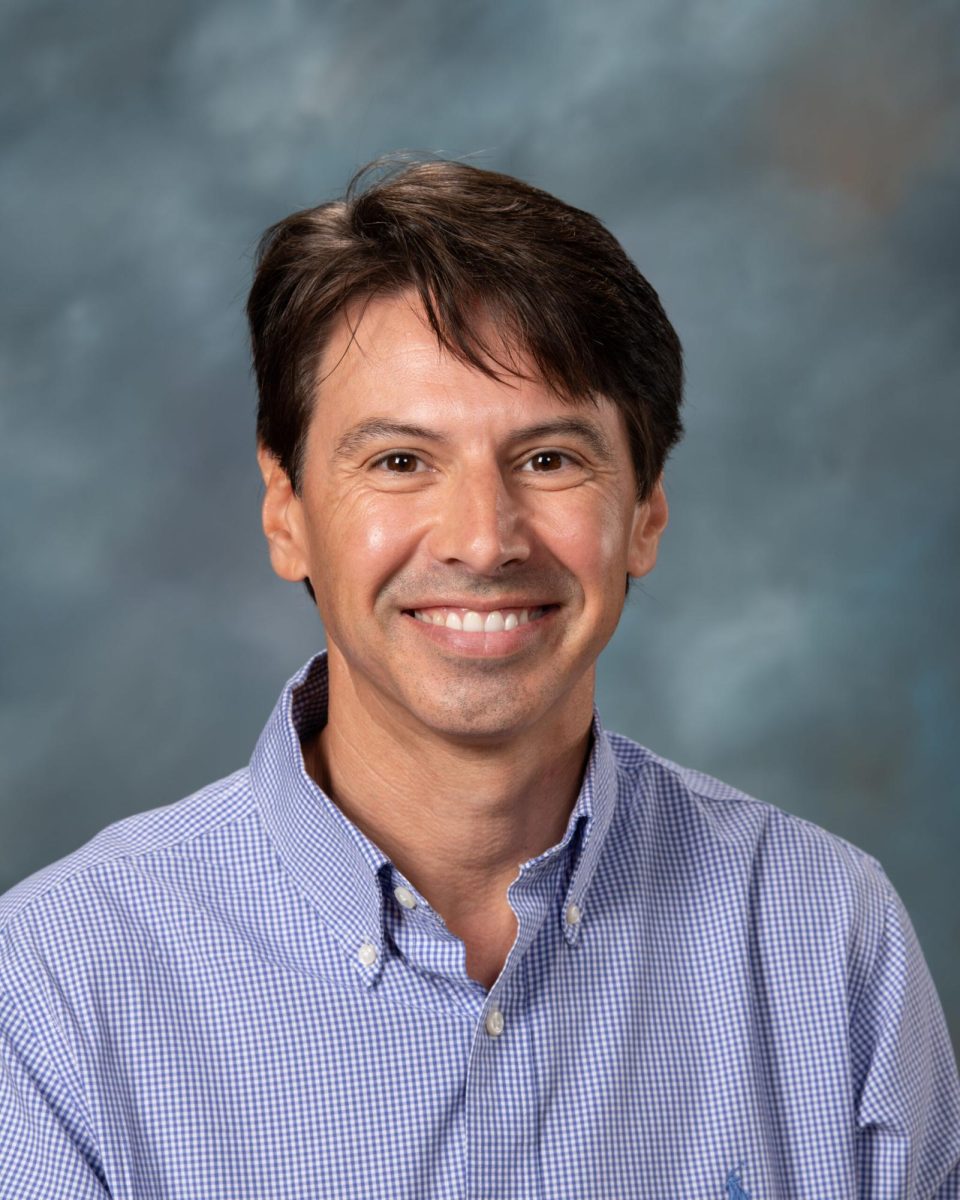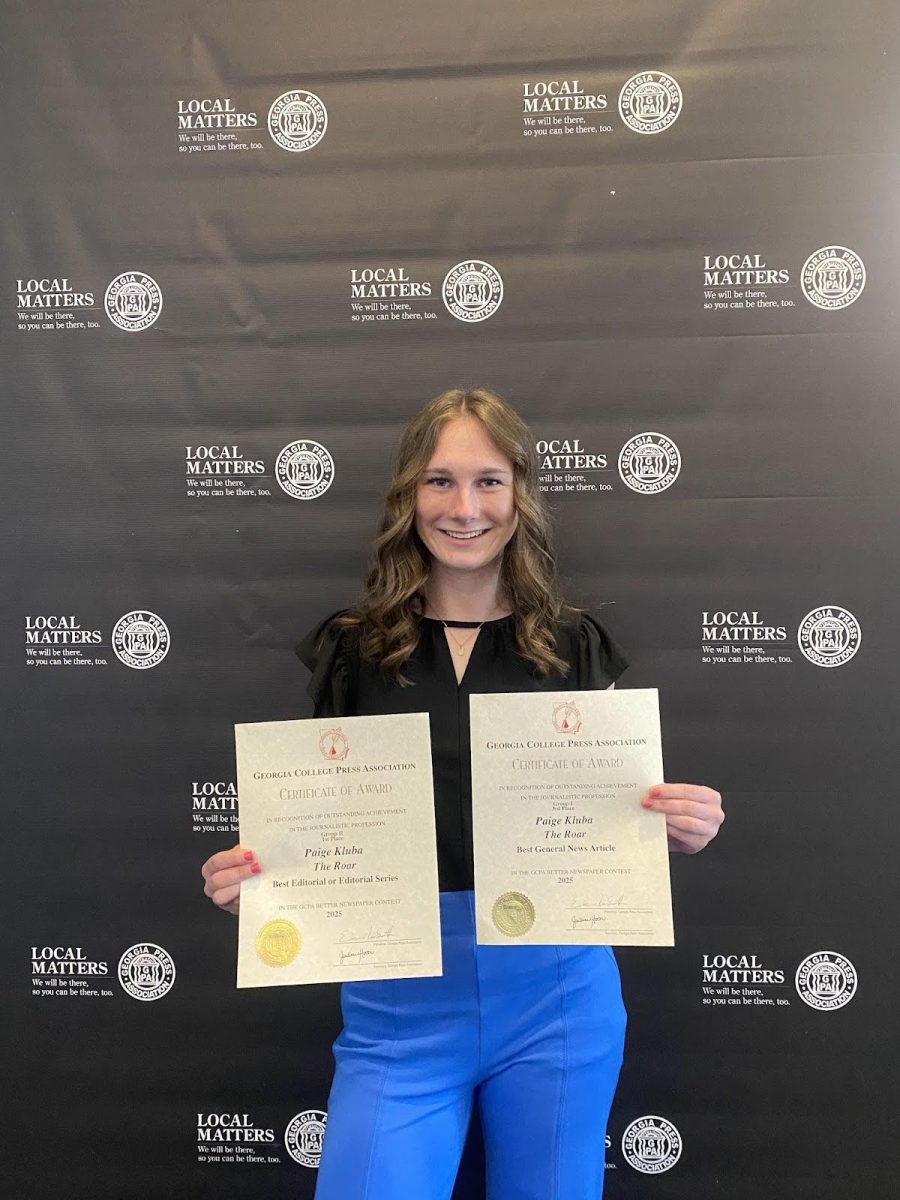
“Communication is key.”
This quote is widely used and is one that a lot of people implement in their lives, but what if communication is not an option?
My roommate is Minda Quenn, a sophomore psychology major at Piedmont College, and the main way we communicate is through texting — even when we’re face-to-face.
In July 2016, Minda had a medical episode with symptoms including loss of cognitive function, loss of motor skills, increased heart rate and low blood pressure. She was quickly rushed the ER. As her symptoms began to fade, doctors ran tests and called for several brain scans. Eventually she felt normal again, except something was not right.
“I could not speak,” Minda wrote in an email response to my questions for this story.
She was set to start college that August, but because she still was having minor seizures and had a few medical scares, her mother wanted her to stay at home. Minda went back and forth from her home to class and to several doctor’s appointments, escorted by her parents due to state law that prevented her from driving. Georgia law states that if a person has seizures, they must go through a six-month period without having another seizure before they are able to drive again.
“One if the reasons I picked Piedmont was because it’s a small enough campus that driving wouldn’t be an issue.”
After her freshman year, she convinced her parents to allow her to live on campus. To this day, she still has minor seizures at night, but they happen while she sleeps and the medications she takes helps them not occur as often. Still, during stressful times of the semester, her hands will start twitching, waking her up from her sleep.
“Sleeping and stress is a vicious cycle for me. The more stressed I am the less I sleep and the less I sleep the more stressed I am.”
Despite her limitations, Minda has made connections with people on campus and has fit in perfectly. Although she was able to speak until the accident, Minda doesn’t think her college experience is any different due to her condition.
“I’m not sure what is different,” she says, noting that the only college experience she understands is one in which she is mute.
Minda’s classroom experience is mostly unaffected. She is able to take notes, write papers and take tests just like any other student. When she has a question, she simply writes it down for the professor. Her business communications class presented a different challenge because students are required to give presentations. Not being able to speak, when giving a presentation, Minda stands in front of her class waiting for her fellow classmates to read through her PowerPoint slides before clicking to the next one.
“My professors have been so understanding about my limitations. Despite having little to no experience with a disability like mine, they have amazing ideas for how I could be accommodated.”
Her parents have been her support system throughout her whole journey. “We have become even closer because I have to rely on them so much.”
A lot of her family members have grown distant because they are unsure how to treat and communicate with her. Other family members just want to talk about her condition. This is mainly because doctors are still unsure of what exactly caused her to suddenly become mute.
“Selective mutism, conversion disorder, shaken impact syndrome, are just a few of the diagnoses doctors have provided,” Minda says.
Each of these have been ruled out and she is currently undergoing more tests to try and pinpoint the true cause of her condition. Doctors currently think the blame could be put on autoimmune disease, which causes the body’s immune system to attack healthy cells.
With all this going on, Minda has still found a way to beat adversity and find the good within the situation.
“I have a new understanding for disabled people, since I technically am one,” she says. “I’ve found it’s easier to be empathetic to all people and their hardships. I find joy in being able to educate people about being disabled and the obstacles we face, both socially and politically.”














